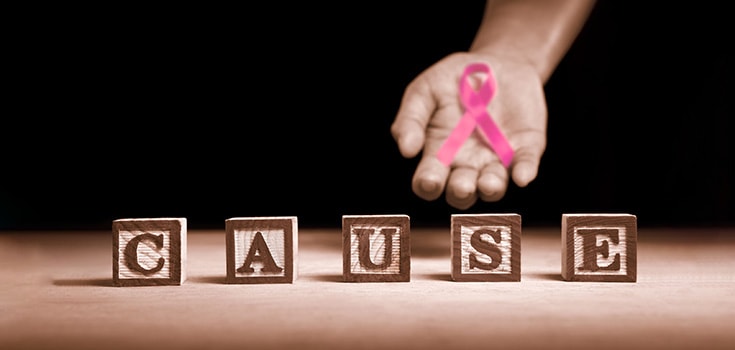Breast Cancer Deception: 3 Ways the Pink Ribbon Misleads You

Breast cancer (and its mainstream treatments) kill thousands of women every year. In 2009 (the last year for which data is available), the CDC says over 40,000 women were killed by this arguably preventable disease. Everyone knows that this is a horrible disease – including corporations. These companies have made a pretty penny by playing on people’s passionate feelings about cancer.
This past year, CoverGirl graciously flew a 13-year old girl and cancer patient to appear on “The Ellen DeGeneres Show”. Talia Castellano is a young make-up blogger and admitted to “adoring” makeup. CoverGirl gave her $20,000 and made her an honorary CoverGirl. But there’s one problem; the company manufactures products with toxic ingredients known to increase cancer risk.
Parabens, formaldehyde, and phthalates, to be specific. While Johnson & Johnson reportedly bowed to the Breast Cancer Fund’s requests to remove such ingredients, Procter and Gamble (the parent company behind CoverGirl) has dodged the issue completely. Now, Procter and Gamble is donating $1 for every breast exam pledge on Facebook to go towards early detection campaigns.
But even experts admit that breast cancer screens are very often unnecessary and could actually cause harm.
One would think that a company who truly cared about cancer would instead try to prevent it.
Continuing onward, a household name in breast cancer charities, the Susan G. Komen Foundation partners with numerous bottled water companies for their For the Cure races around the country. The problem with this—most of these bottled water companies use bottles that contain BPA, a known hormone disrupter, one that increases the risk of cancer.
Interestingly, Athena bottled water is similarly sold in BPA bottles and was founded by a breast cancer survivor.
And if you need another example of misdirected “good will”, the Progresso company, that makes soup, serves up cans on grocery store shelves around the world. These cans are lined with a resin containing BPA. Yes the same hormone-disrupting BPA. And now they are using pink ribbon labels to help sell more. General Mills says a portion of their proceeds will go to breast cancer research, but they won’t spend a dime to reduce breast cancer by changing packaging until a consumer-driven upheaval begins.
So, what is it these companies really care about? Is it the hundreds of thousands of women that will be diagnosed with breast cancer this year, or is it cashing in on the disease to boost their bottom line. After all, the bigger the problem (breast cancer) is, the more people will support that pink ribbon!
Additional Sources:

Really its shocking,and thank you for sharing this info,I was diagnose with cancer after having an eye operation,still going for check ups and nothing much has been done,I’m I south africa,and my report from the lab reads like this:The 39 year old patient underwent an excisional biopsy of the left conjunctival lesion.The clinical impression was that of squamous cell carcinoma.Microscopy: specimen bisected along the long axis,section show conjunctival tissue which shows full thickness dysplasia with areas of invasion.There is a desmoplastic stromal response in the areas of invasion.Surface ulceration is present,but no viral cytopathy is seen.multiple levels have been examined.No lymphovascular or perineural invasion is observed.The dysplasia is present at the resection margins.Conclusion: squamous. Cell carcinoma irising in surface dysplasia.The dysplasia is present at resection margins.
Good on you Suzan, so happy for you, I hope Margaret was inspired with your post, keep up the good work.
I noticed that when I went healhy eating years ago that I'm a nicer and calmer being, it was like magic hit me as you have experienced.
It is amazing what natures foods can really do to a person when companies like Monsanto keep them rubbish away from it..